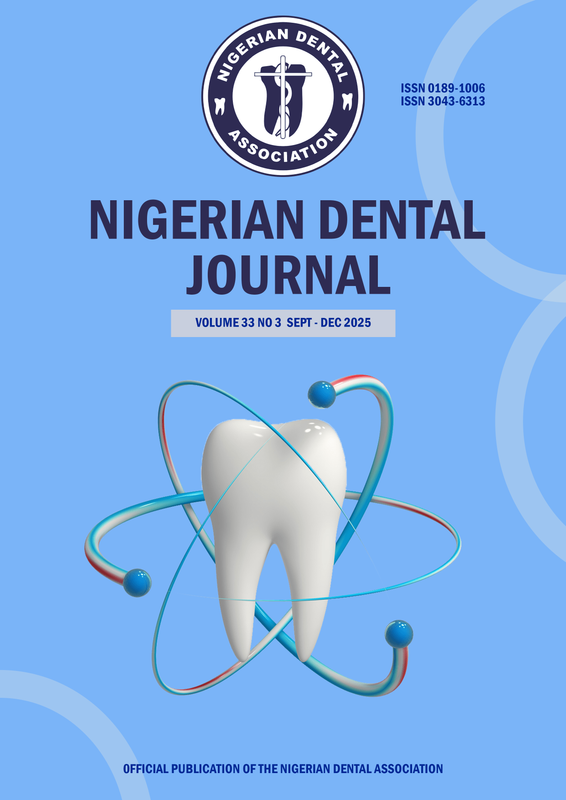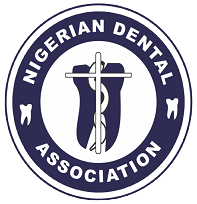A cephalometric assessment of the nasolabial angle of an adult Nigerian population
DOI:
https://doi.org/10.61172/ndj.v19i2.130Keywords:
Cephalometrics, Nasolabial angle, Nigerian populationAbstract
Objective: One of the most important components of orthodontic diagnosis and treatment planning is an evaluation of the patient's soft tissue profile. An assessment of the nasolabial angle is a vital component of this evaluation. The purpose of this study was to establish norms for the nasolabial angle of an adult Nigerian population; compare the male and female values and to compare the values obtained for Nigerians with those reported for other populations.
Method: Lateral cephalometric radiographs of one hundred students (44 males and 56 females) of the College of Medicine, University of Lagos, aged 18-25years were taken. Selected subjects were of Nigerian ancestry with normal occlusion. The radiographs were manual ly t raced and the nasolabial angle of each subject measured.
Result: A mean value of 84.35° +13.71° was computed for the entire sample. No statistically significant difference was observed between the male and female values (p>0.05), although 0 0 the males recorded a lower nasolabial angle (83.70 ) than the females (85.28 ).The nasolabial angle recorded in this study was similar to that reported for South African blacks, but much lower than that reported for Caucasian populations.
Conclusion: The mean nasolabial angle of 84.35 + 13.71 was observed in the Nigerian population studied. Sexual differences were not observed; however, the values observed in this study differ from that reported for Caucasians and other racial groups.
Downloads
Downloads
Published
Issue
Section
License
Copyright (c) 2011 G. I. Isiekwe, O. O. daCosta, M. C. Isiekwe

This work is licensed under a Creative Commons Attribution 4.0 International License.
Open Access Statement
- We became fully Open Access since January 2023.
- Our new and archived materials are available free of charge on open basis and under a Creative Commons license as stated below.
Copyright statement
Copyright © 1999 The authors. This work, Nigerian Dental Journal by Nigerian Dental Association is licensed under Creative Commons Attribution 4.0 International License.

